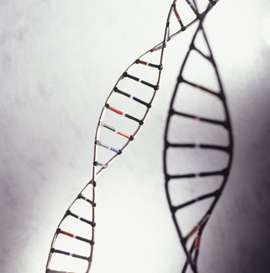Study identifies genetic variants associated with preference to mornings or nights

23andMe, Inc. today announced the results of one of the largest genome-wide association studies of its kind, identifying genetic variants associated with being a morning person.
Published in Nature Communications the study identified 15 locations in DNA (loci) associated with "morningness."
"In this study we set out to discover more about an individual's preference toward early rising and were able to identify the genetic associations with "morningness" as well as ties to lifestyle patterns and other traits," said Youna Hu, PhD, who led 23andMe's research on the paper. "This type of study speaks to the power of the 23andMe database, which can yield genetic insights into a variety of conditions and traits, and potentially how those genetic factors are affected by behavior and environment."
Morningness is governed by differences in circadian rhythm, which have previously been linked to medically relevant traits such as sleep, obesity and depression. The study of more than 89,000 23andMe customers who consented to participate in research found that seven of the loci associated with morningness are near genes previously known to be involved in circadian rhythm, including HCRTR2 (linked to narcolepsy), FBXL3 (shown to have extended circadian period) and VIP (found to prolong REM sleep). Additional findings from the study and data from 23andMe customers include:
- The majority (56 percent) of participants consider themselves night owls
- Women and adults over age 60 are more likely to be morning people
- Morning people are significantly less likely to have insomnia, or require more than eight hours of sleep per day, and less likely to suffer from depression than individuals who reported being "night owls"
The researchers also found that after taking into account the effect of age and sex, morning persons are likely to have lower BMI. While this does not imply a causation, some of the findings may warrant a deeper dive into the biology. For instance, variants in the FTO gene associated with obesity were also found to be associated with being a morning person.
"The beauty of 23andMe is the ability to conduct research on common traits like being a lark or a night owl, which affect everyone, yet typically wouldn't receive funding for a study," said David Hinds, Ph.D., senior research scientist at 23andMe and a co-author of the paper. "With the information we have, we can uncover the genetics behind a variety of conditions and diseases, and hopefully reach a better understanding of how we differ from one another."
The findings also reinforce the current understanding of circadian biology and may guide future studies of circadian rhythms, sleep and related disorders.
More information: Nature Communications, DOI: 10.1038/ncomms10448















